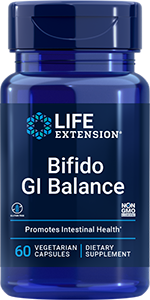Metformin shows promise for the treatment of pancreatic cancer Tuesday, July 3, 2012. At the American Association for Cancer Research's Pancreatic Cancer: Progress and Challenges conference, held June 18-21, 2012 in Lake Tahoe, Nevada, Christopher Heeschen, MD, PhD of the Spanish National Cancer Research Centre reported positive results for metformin in experiments involving pancreatic cancer cell cultures and mice implanted with pancreatic cancer tumors. The drug helps eliminate cancer stem cells, a population of cells that are resistant to chemotherapy and which may be responsible for the initiation and recurrence of the disease. Metformin is currently prescribed to diabetic patients and has shown potential as a cancer preventive and treatment, in addition to other possible uses. In the current research, pretreatment of pancreatic ductal adenocarcinoma cancer stem cells with metformin resulted in activation of 5' adenosine monophosphate-activated protein kinase (AMPK), an enzyme that helps regulate cellular energy. Treatment with a combination of gemcitabine (the standard chemotherapy for pancreatic cancer) and metformin eradicated cancer stem cells as well as other malignant cells. When Dr Heeschen's team implanted immunocompromised mice with pancreatic cancer tumors and treated them with gemcitabine and/or metformin, animals that received both drugs had fewer tumors and a lower incidence of relapse in comparison with those that received either drug alone. "Intriguingly, in all tumors treated with metformin to date, relapse of disease was efficiently prevented and there were no noticeable adverse effects," remarked Dr Heeschen, who is a professor of experimental medicine at the Spanish National Cancer Research Centre in Madrid. "As the cancer stem cells represent the root of pancreatic cancer, their extinction by reprogramming their metabolism with metformin in combination with the stalling of the proliferation of more differentiated cells should result in tumor regression and long-term, progression-free survival," he noted. "Efficiently targeting these cells will be crucial for achieving higher cure rates in patients with pancreatic cancer. Our newly emerging data now indicate that metformin, a widely used and well-tolerated drug for the treatment of diabetes, is capable of efficiently eliminating these cells." |
 |  | | A report by scientists from McMaster University, the University of Dundee and the University of Melbourne, published online on April 19, 2012 in the journal Science, suggests a common mechanism for salicylate—aspirin's active compound—and the drug metformin in decreasing the risk of several diseases. "Salicylate, a plant product, has been in medicinal use since ancient times," Simon A. Hawley and colleagues write in their introduction to the article. "More recently, it has been replaced by synthetic derivatives such as aspirin and salsalate, both rapidly broken down to salicylate in vivo." The authors explain that salsalate or aspirin administered in high doses result in the activation by salicylate of adenosine monophosphate-activated protein kinase (AMPK), a regulator of cell growth and metabolism. AMPK is known to be activated by exercise as well as the antidiabetic drug metformin. "We're finding this old dog of aspirin already knows new tricks," commented co-principle investigator Dr Greg Steinberg, who is an associate professor of medicine in the Michael G. DeGroote School of Medicine at McMaster University and the Canada Research Chair in Metabolism and Obesity. "In the current paper we show that, in contrast to exercise or metformin which increase AMPK activity by altering the cells' energy balance, the effects of salicylate are totally reliant on a single Ser108 amino acid of the beta 1 subunit. "We show that salicylate increases fat burning and reduces liver fat in obese mice and that this does not occur in genetically modified mice lacking the beta1 subunit of AMPK," he noted. The fact that both metformin and aspirin activate AMPK suggests that their recently publicized benefits in reducing the risk of cancer could be due to a shared mechanism. However, only further studies can confirm the validity of this interesting hypothesis. | 
- On the cover:
- Reports:
- Departments:
- Journal abstracts:
| |
| 
|  | Bifido GI Balance
Item #01622 |  | | | BB536®, a unique well-studied strain of the bifidobacteria probiotic, increases the number of healthy bacteria in the colon. An in vivo study demonstrated a significant increase in longevity in mice supplemented with bifidobacteria. BB536® was also found to reduce production of inflammatory cytokines that often accompany seasonal symptom development. Each capsule of Bifido GI Balance provides two billion colony-forming units of viable healthy bacteria. BB536® is a registered trademark of Morinaga Milk Industry Co., Ltd. | |  | Certified European Milk Thistle
Item #01517 |  | | | Certified European Milk Thistle is the first milk thistle extract to contain standardized, premium-quality potencies of silymarin, silibinins, isosilybin A and isosilybin B, providing the full spectrum of milk thistle compounds that promote a healthy liver and prostate. The botanical extract in Certified European Milk Thistle is a triple standardized milk thistle extract. In addition to an optimal 80% standardization of the main active compounds, silymarin flavonolignans, this formula is further standardized to three highly active isomers — silibinins and isosilybin A and B. | | |



